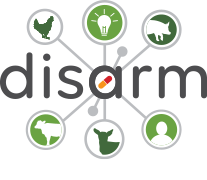71 A cross‑sectional study of suckling calves’ passive immunity and associations with management routines to ensure colostrum intake on organic dairy farms ( Research paper, Johnsen, 2019)
Click here for resource
Significant Impact Group(s): Pathogen management ; AMU reduction strategies
Species targeted: Dairy;
Age: Young;
Outcome Parameter(s): Prevalence of failure of passive transfer (FPT)
Summary: For suckling dairy calves, different management routines to ensure sufficient colostrum intake are applied: visual assessment, hand feeding supplemental colostrum or assistance. However, not much is known about the efficacy of these methods to prevent failure of passive transfer (FPT). In these study herds, the prevalence of FPT among all suckling calves was high, and comparable to that reported from Norwegian calves in conventional herds, that are separated from the dam and fed colostrum artificially. Securing high colostrum quality is an important preventive measure of FPT in suckling dairy calves. The results indicate that for calves capable of finding the udder and suckling independently, there is no direct benefit of routinely hand feeding colostrum, although herd level factors may play an important role. Herds practicing suckling need to systematically address all the three most important factors to ensure passive transfer of immunity: time from birth, colostrum quantity and colostrum quality.
71 Research paper – Johnsen – 2019 – A cross‑sectional study of suckling calves passive immunity and associations with management routines to ensure colostrum intake on organic dairy farms
Where to find the original material:
https://actavetscand.biomedcentral.com/articles/10.1186/s13028-019-0442-8
Country: NO
